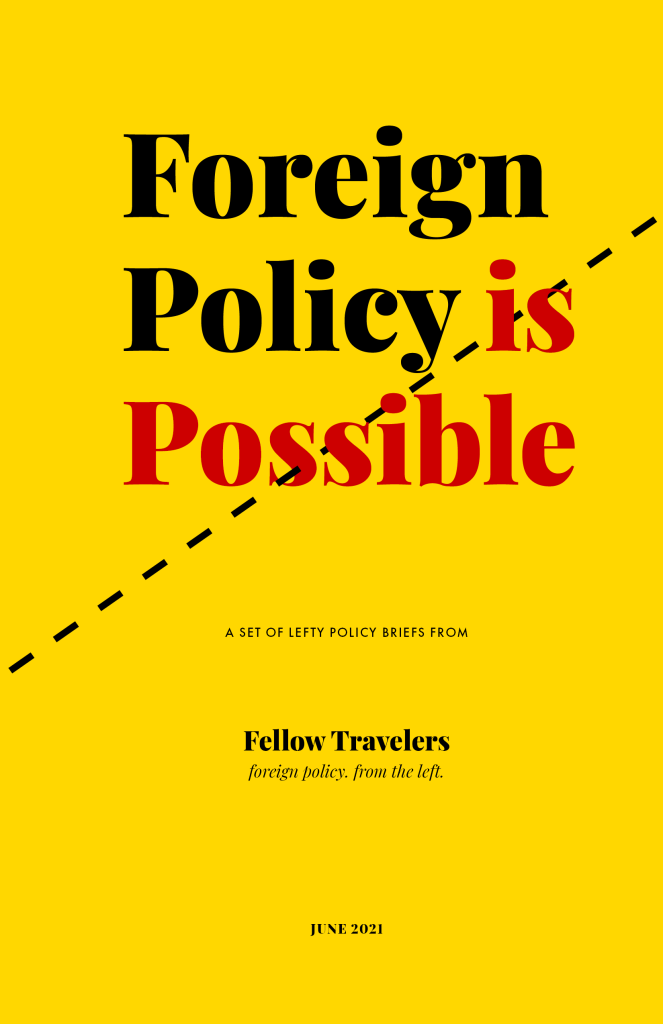(TLDR: Help fund our briefing booklet to circulate lefty FP ideas in Congress, greater DC, and beyond)
Is a left-wing foreign policy possible? This site is an ongoing project to prove the answer is yes.
Over the past few months, we’ve published a series of policy briefs aimed at building a substantive (but hardly exhaustive) agenda for progressive foreign policymaking. These briefs all aim at reducing the harm that results from “business as usual” US foreign policy and expanding democratic participation and buy-in for US foreign policymaking writ large.
We are thrilled to announce that we will be releasing updated versions of these 9 policy briefs as part of an edited booklet on June 17th, entitled “Foreign Policy is Possible.” It will look something like this:

We will have some kind of virtual launch event (again on June 17th) – for an invite (probably next week), follow the site by putting in your email to the right (if you don’t already!).
While we have been a labor of love for some time, we are reaching out to ask for your support in publishing in printing physical copies of the booklet. Printed copies will help us get these ideas in front of more eyeballs among activists, analysts, and Congressional staff – we have set up a GoFundMe for this purpose (managed by Andrew Leber).
We know times are difficult, but anything you can spare goes towards:
- Publication of the booklet as a physical document. We’ve been quoted printing costs (environmentally friend, U.S. printer) of around $1300 for 100 copies – enough to distribute among Congressional offices and peer organizations in left-wing foreign policy spaces
- Providing a modest honorarium to our authors and designer (specifics tbd, but at least ensuring they can each get a physical copy of the booklet)
- Secure seed funding towards setting up a system to pay modest compensation for contributions to the Fellow Travelers blog (with whatever funds remain)
And of course, your generosity will not go unnoticed:
- Donate any amount and you have our undying thanks + high probability one of us buys you a beverage of your choice in-person some day
- Donate $25 and we will thank you by name (if desired) on the booklet page once it goes live (or update thereafter)
- Donate $50 and we will mail you a physical copy of the booklet once printed (again, if desired)
The pdf of the briefing book will go live on our website either way for free download.
We hope you find the ideas within – and more generally, on this site – both useful thoughts on what should change in US foreign policy as well as a pragmatic agenda for what can change in US foreign policy through pressure from activists, academics, commentators and Congressional reps. And of course, contact us with any pitch ideas or other comments.
Regards,
Kelsey Atherton, Andy Facini, Yong Kwon, Andrew Leber, Sam Ratner, Emma Steiner & the rest of the FTB crew










